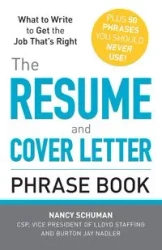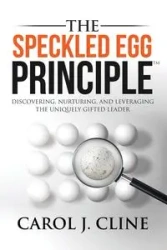Książki ekonomiczne i biznesowe po angielsku - T
( ilość produktów: 10 )Książki obcojęzyczne - T : Ekonomia Biznes

The Six Month Fix - Gary Sutton
- Autorzy:
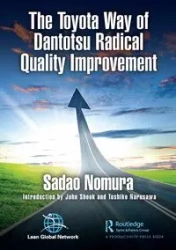
The Toyota Way of Dantotsu Radical Quality Improvement - Nomura Sadao
- Autorzy:
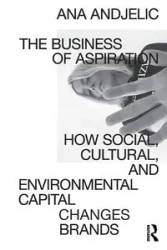
The Business of Aspiration - Ana Andjelic
- Autorzy:
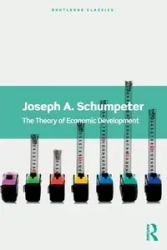
The Theory of Economic Development - Joseph A. Schumpeter
- Autorzy:
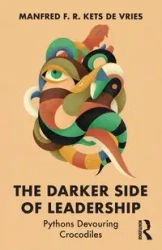
The Darker Side of Leadership - Manfred F. Kets de Vries R.
- Autorzy:

The Use of Classroom Questioning Skills in English Teaching - Mohammed Mohammed Al-Aqeeli
- Autorzy:
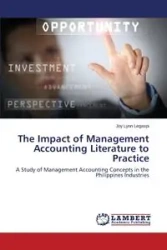
The Impact of Management Accounting Literature to Practice - Joy Lynn Legaspi
- Autorzy:

The Circular Economy - Walter Stahel R
- Autorzy:
Książki o ekonomii po angielsku na T
Zapraszamy do zapoznania się z kategorią naszej strony, które przedstawiają książki ekonomiczne po angielsku na T. Nasza oferta stanowi niezwykle unikalny oraz zróżnicowany wybór wyselekcjonowanych tytułów najróżniejszych autorów z zakresu nauk ekonomicznych. Czytelnik znajdzie wśród nich pozycje naukowe, podręczniki, ale również popularnonaukowe książki ekonomiczne. Wszystko to w eleganckim angielskim języku, który stanowi nieodłączny element globalnego biznesu. Jeśli interesujesz się zagadnieniami ekonomicznymi i uczysz się języka angielskiego lub już dobrze go znasz – z pewnością znajdziesz w tej kategorii publikacje, które spełnią wszystkie Twoje oczekiwania i potrzeby.
Wyjątkowe książki ekonomiczne po angielsku na T
Niezależnie, czy jesteś studentem, profesjonalistą czy po prostu entuzjastą ekonomii, nasza kategoria książek ekonomicznych po angielsku na T z pewnością zaspokoi Twoje potrzeby. Znajdziesz tu wiele inspirujących tytułów, które pomogą Ci zrozumieć zagadnienia ekonomiczne. Szeroki wybór tematów sprawia, że każdy miłośnik nauk ekonomicznych znajdzie tu coś dla siebie. Poczynając od kwestii mikroekonomii, przez zagadnienia makroekonomiczne, aż po analizy finansowe. Książki są doskonałym źródłem wiedzy dla tych, którzy chcą zgłębić tajniki ekonomii w praktyczny sposób.
Najlepsza książka o biznesie po angielsku na T
Jeżeli szukasz specjalistycznej wiedzy z zakresu biznesu, sprawdź naszą najlepszą książkę o biznesie po angielsku na T. Pozwala ona na rozwijanie profesjonalnych umiejętności, które mogą pomóc w rozwijaniu własnej działalności. Praktyczne porady, a także teoretyczne podstawy biznesu prezentowane są tu w łatwo przyswajalnej formie. Ta książka o biznesie jest doskonałym wyborem dla tych, którzy chcą poznać tajniki prowadzenia firmy.
Najlepsza książka o ekonomii po angielsku na T
Nasza kategoria książek o ekonomii po angielsku na T zawiera również tę szczególną gratkę dla miłośników ekonomii. Wybierz naszą najlepszą książkę o ekonomii po angielsku na T - to prawdziwa kopalnia wiedzy dla każdego, kto chce dogłębnie zrozumieć świat ekonomii. Autorskie spojrzenie na różne aspekty działania gospodarki, innowacyjne podejście do znanych problemów, a także liczne przykłady z praktyki biznesowej, czynią tę książkę nieocenionym źródłem informacji.
Książka o biznesie po angielsku na literę T
Poszukujesz szczegółowych informacji na temat prowadzenia biznesu? Wybierz naszą książkę o biznesie po angielsku na literę T. Zawartość książki skupia się na praktycznych aspektach prowadzenia firmy, takich jak zarządzanie, marketing, finanse czy obsługa klienta. Twórcy książki zadbali również o to, aby zawarte w niej informacje były zrozumiałe nie tylko dla doświadczonych przedsiębiorców, ale również dla osób dopiero rozpoczynających swoją przygodę z biznesem.
Wybór naszych książek o ekonomii po angielsku na T pozwoli Ci na pogłębienie swojej wiedzy i zrozumienie skomplikowanych procesów ekonomicznych rządzących światem. Poznaj fascynujący świat ekonomii i biznesu dzięki naszym publikacjom.

